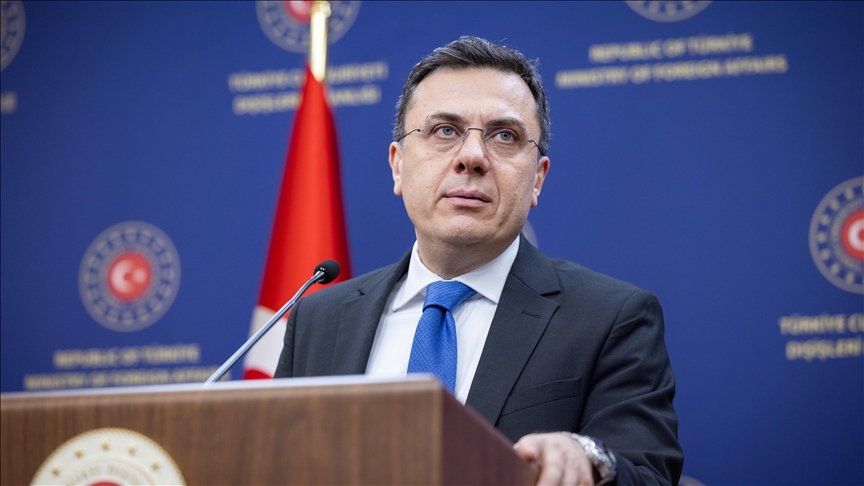Türkiye welcomes South Africa’s move to bring Israel to international court
ICJ expected to issue interim injunction ordering Israel to stop its attacks on Gaza, says Turkish Foreign Ministry spokesman
 Turkish Foreign Ministry Spokesman Oncu Keceli ( Murat Gok - Anadolu Agency )
Turkish Foreign Ministry Spokesman Oncu Keceli ( Murat Gok - Anadolu Agency )
ISTANBUL
Türkiye on Wednesday welcomed South Africa’s move to bring Israel before the International Court of Justice (ICJ) over its alleged genocidal violations against Palestinians in the Gaza Strip.
"We welcome the application of South Africa to the International Court of Justice against Israel for violation of its obligations under the 1948 Convention on the Prevention and Punishment of the Crime of Genocide," Turkish Foreign Ministry spokesman Oncu Keceli said on X.
"Israel's massacre of more than 22,000 Palestinian civilians, mostly women and children, in Gaza for nearly three months cannot go unpunished, and those responsible must be held accountable before international law," he added.
"We hope that the process will be completed as soon as possible. "
The ICJ is expected to issue an interim injunction ordering Israel to stop its attacks on Gaza, he said.
Keceli said that Türkiye will follow the implementation of this decision.
The application filed Friday concerned “alleged violations by Israel of its obligations under the Convention on the Prevention and Punishment of the Crime of Genocide in relation to Palestinians in the Gaza Strip," the ICJ said in a press release.
South Africa will appear before The Hague-based International Court of Justice (ICJ) next week to present its case against Israel’s alleged genocide in Gaza, a Foreign Ministry official said. The hearing is scheduled for Jan. 11 and 12.
Israel will appear before the court to contest the accusations, an Israeli government spokesman said on Tuesday.
Anadolu recently published a book titled The Evidence containing images that expose possibly criminal actions by Israel in Gaza. South Africa is using the photo evidence at the ICJ to argue its case.
The death toll from the Israeli assault on Gaza since the Oct. 7 cross-border offensive by Hamas has crossed 22,000, with more than half of them women and children.
Most of the enclave’s population of more than 2.2 million remains under siege and bombardment, displaced, and short of food.








